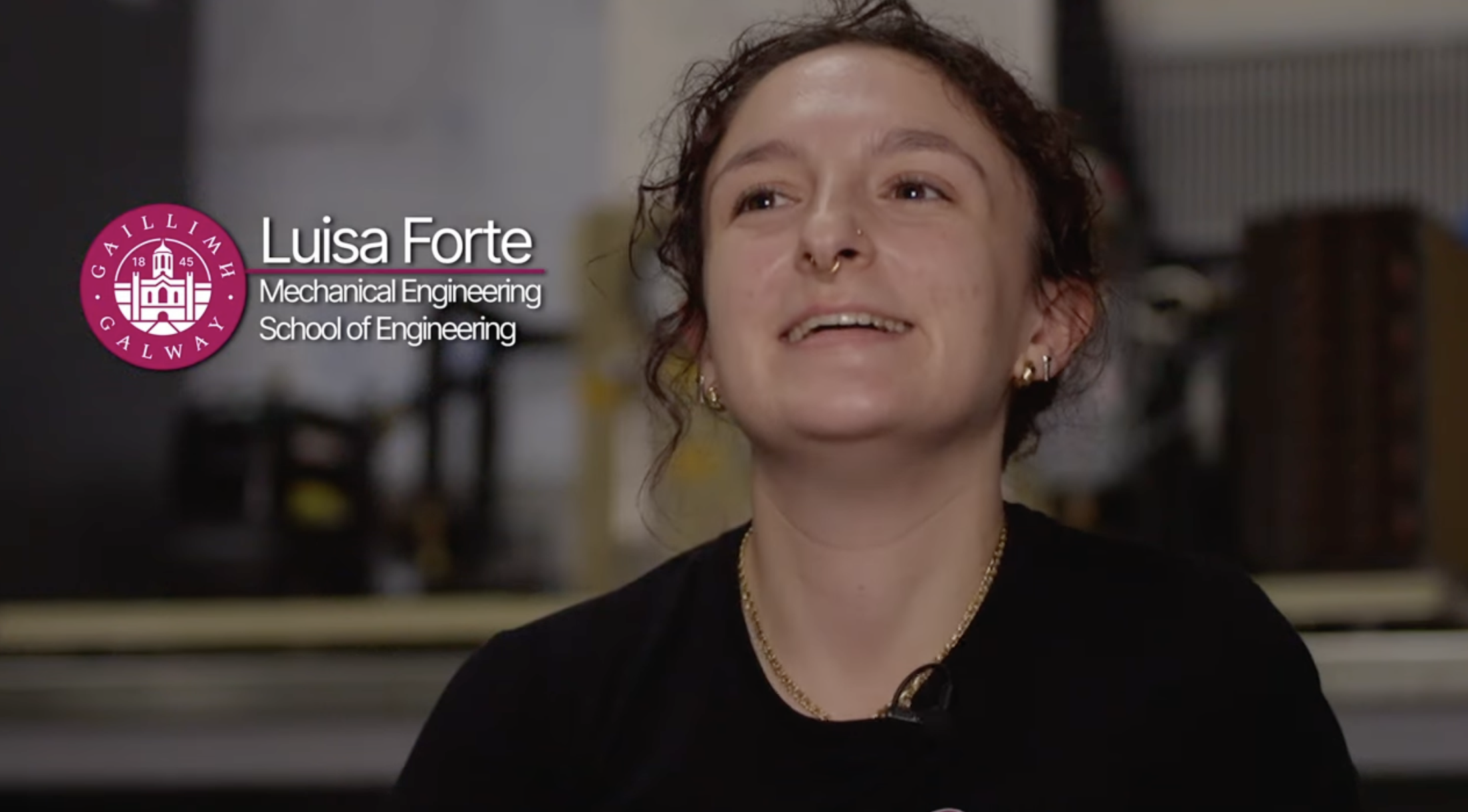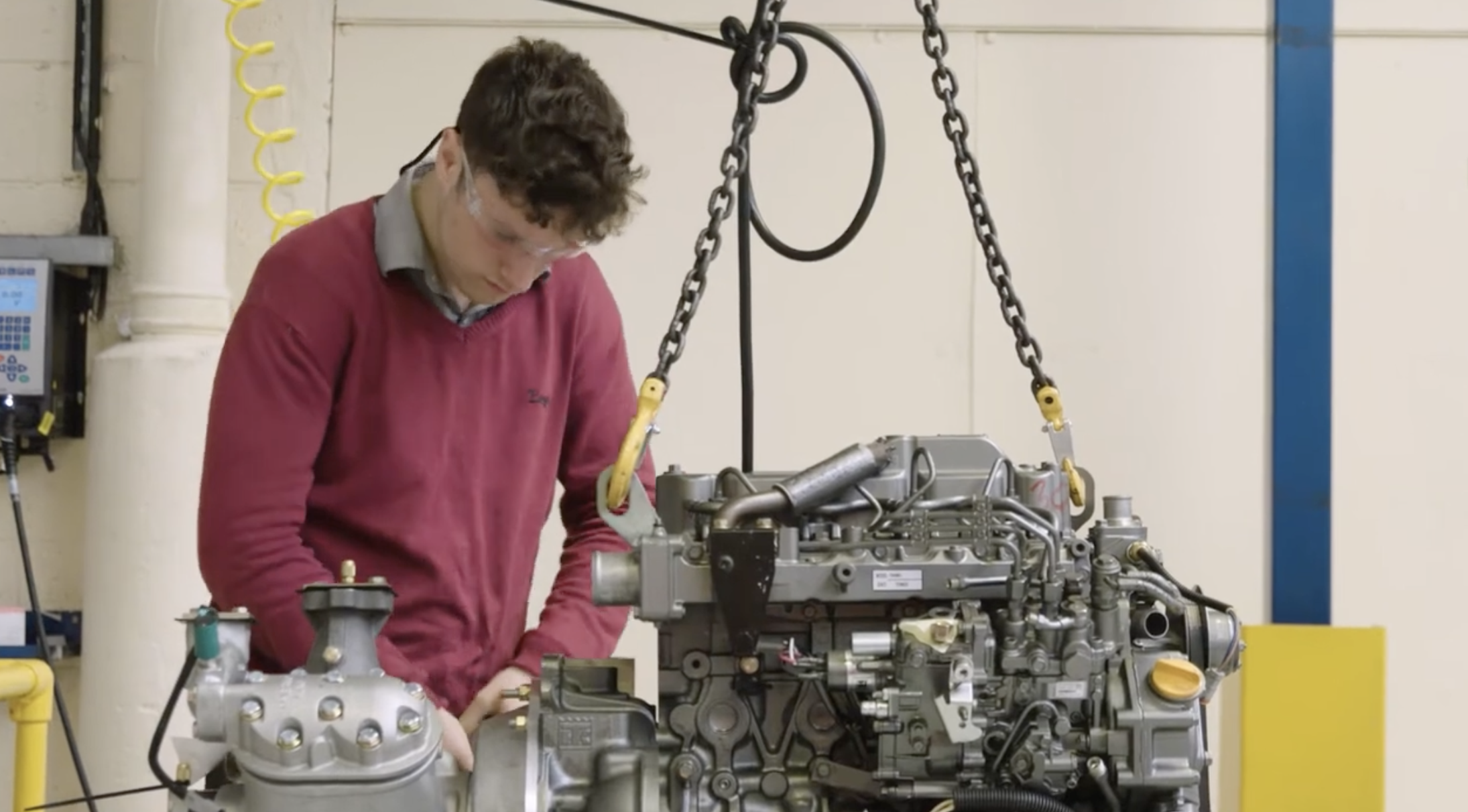-
Courses

Courses
Choosing a course is one of the most important decisions you'll ever make! View our courses and see what our students and lecturers have to say about the courses you are interested in at the links below.
-
University Life

University Life
Each year more than 4,000 choose University of Galway as their University of choice. Find out what life at University of Galway is all about here.
-
About University of Galway

About University of Galway
Since 1845, University of Galway has been sharing the highest quality teaching and research with Ireland and the world. Find out what makes our University so special – from our distinguished history to the latest news and campus developments.
-
Colleges & Schools

Colleges & Schools
University of Galway has earned international recognition as a research-led university with a commitment to top quality teaching across a range of key areas of expertise.
-
Research & Innovation

Research & Innovation
University of Galway’s vibrant research community take on some of the most pressing challenges of our times.
-
Business & Industry

Guiding Breakthrough Research at University of Galway
We explore and facilitate commercial opportunities for the research community at University of Galway, as well as facilitating industry partnership.
-
Alumni & Friends

Alumni & Friends
There are 128,000 University of Galway alumni worldwide. Stay connected to your alumni community! Join our social networks and update your details online.
-
Community Engagement

Community Engagement
At University of Galway, we believe that the best learning takes place when you apply what you learn in a real world context. That's why many of our courses include work placements or community projects.
Bachelor and Master of Engineering (Mechanical)
CAO Code: GY405
Course Overview
Mechanical Engineering is a subject concerned with the design and manufacture of parts and systems that make up the range of machinery and equipment you see around you, from a can opener to a jet aircraft. Mechanical engineers design the tools and processes necessary to create all man-made products, and are often involved from conceiving of an idea right through to seeing it as a finished product ready for its commercial application. They design everything you think of as a device or machine. Devices used in engines, the components used in transportation, power conversion equipment, like the steam and wind turbines used in modern electric power plants, and processing equipment used in oil and gas rigs all come within the remit of the mechanical engineer.
If you think you have or can develop the skills and knowledge to understand the requirements for designing a moving device or machine for the environment it will be used in as well as understand how it will best be manufactured, then you may make a good mechanical engineer. This degree programme is designed to provide graduates with the skills to face the challenge for newer, better, faster, more reliable, more versatile, longer-lasting and more environmentally friendly products and processes. These skills need also to be complemented by the managerial and personal skills needed to interact with teams on joint projects.
Learning about Mechanical Engineering will help you to develop your creative side, a part of your thinking that will enable you to design a new product or system and the analytical skills to make it a reality. You will also learn about the value of the teamwork skills that go into the successful production of most devices and processes used in today's world. These are valuable skills that will be useful in other areas of your life also.
Integrated Masters (ME) and Work placement
All students registering for an engineering degree at University of Galway will be enrolled on an integrated five year programme; a Bachelor of Engineering (BE) (four years, Level 8) + a Master of Engineering (ME) (one year, Level 9). Upon successful completion of the five years of study, graduates will have the educational qualifications required for progression to Chartered Engineer. Students registering for an engineering degree at University of Galway in 2019 will make a decision at the beginning of 3rd Year to either remain on the BE+ME pathway (five years) or exit with a BE (four years). Students on the BE+ME pathway will avail of advanced engineering modules, a substantial research and development project, and a work placement of eight months duration during the 4th Year. For students exiting with a BE, the work placement (eight months) will occur during 3rd Year. Read more about Engineering work placements.
Accreditation
All Engineering Degrees at University of Galway are professionally accredited by the statutory professional body, Engineers Ireland. This “Accreditation” means that the degree has been assessed and approved to meet the educational requirements for professional Engineers.
- Under an international agreement (Washingon Accord), any Degree accredited by the National professional body (Engineers Ireland) is recognized internationally. So having an “Accredited” degree means that employers outside of Ireland can (1) understand the quality/education achieved by a graduate and (2) know that it is equivalent to their own Education system/standards, and (3) can offer appropriate employment on this basis. For example, certain functions (sign off on large civil engineering construction projects) can only be carried out by a chartered engineer.
- Engineers Ireland changed the criteria for Accreditation in 2012, and now require a Masters (Level 9) qualification as the education standard required for Registered Professional Titles of Chartered Engineer* (prior to this, a Level 8 degree was required). The changes were implemented because the standard European engineering qualification (degree or diplome) is at level 9, and European industry maintains a strict differentiation between those engineers qualified at level 9 and those qualified at level 8. Any graduate interested in working in Europe/Worldwide is now strongly advised to get an accredited level 9 award.
- Engineers Ireland accreditation can be obtained at the following levels:
- Level 8: 4-year honours degree – associate engineer
- Level 9: 5-year masters degree – chartered engineer
*A Chartered Engineer is the highest professional education standard in Engineering. A chartered Engineer is competent (because of their education and training) to assume personal responsibility for the development and application ofengineering in research, design, construction, manufacturing, superintending, managing and in the education of the engineer. His/her work is predominantly intellectual and varied and not of a routine mental or physical character. It requires the exercise of original thought and judgement and the ability to supervise the technical and administrative work of others.
What Our Students Say

James Grogan | BE (Mechanical)
...I have always had a keen interest in finding out how things work, which often led me to taking apart everything I could get my hands on when I was younger. In third year students spend five months working in industry. This gives a real appreciation of how everything you learn in the classroom can be applied in an industrial setting. It is likely that knowledge of this area will become very important in the future, as it will be the next generation of engineers who must rise to the challenge of designing cleaner and more efficient systems...
What Employers Say

Majella Henchion, BE MSc | Networks Programme Owner, ESB
As a major employer of graduates from University of Galway’s Energy Systems, Mechanical, Civil and Electrical/Electronic Engineering programmes, ESB welcomes the establishment of University of Galway’s integrated five-year Accredited Master of Engineering degrees. We see great value in the additional educational attainment in and of itself but also as a key step in progression towards Chartership which is important for our Engineers because of the critical infrastructural nature of our work and the general management capability Chartership represents. ESB also welcomes the positioning of the work placement programme between the fourth and fifth years of study as it will enable the students to be given greater responsibility and experience a greater range of ESB’s work in the energy sector. We believe the movement of the industry placement makes it of greater value to the student, the undergraduate employer and to any post-graduate employer of that engineer.

Declan Costello | Senior R&D Manager, Medtronic
Medtronic welcomes the expansion of the University of Galway Engineering programs to an integrated five-year Accredited Master of Engineering degree. Medtronic already employs a large number of University of Galway Engineering graduates and the move to a five-year program aligns with international best practice, provides a more highly educated talent pool and facilitates an extended work placement which is hugely beneficial to both the company and the student.






















